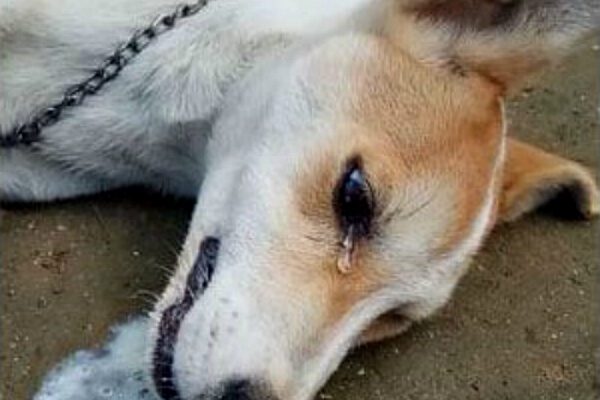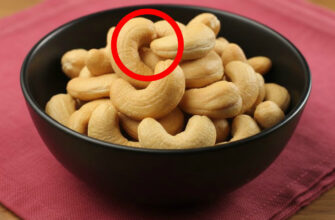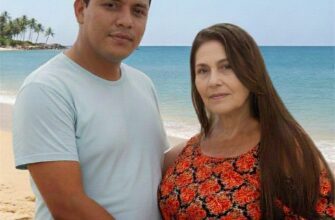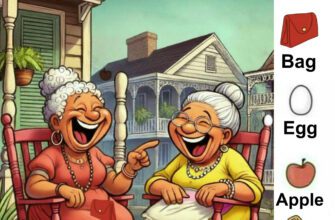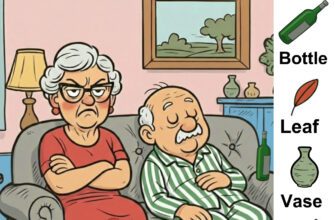He didn’t whine. He didn’t bark. He didn’t even try to crawl away. He just lay there — on the cold, dusty ground, pressing his chin to the concrete floor with all his might, his tongue hanging out and cloudy saliva in his mouth. His eyes were open — so wide that they seemed painted. A drop glistened in one eye, hopelessness reflected in the other. People passed by, someone turned around, someone took a step faster, someone said: «Probably rabies… it’s scary to approach.»
And he was just dying.
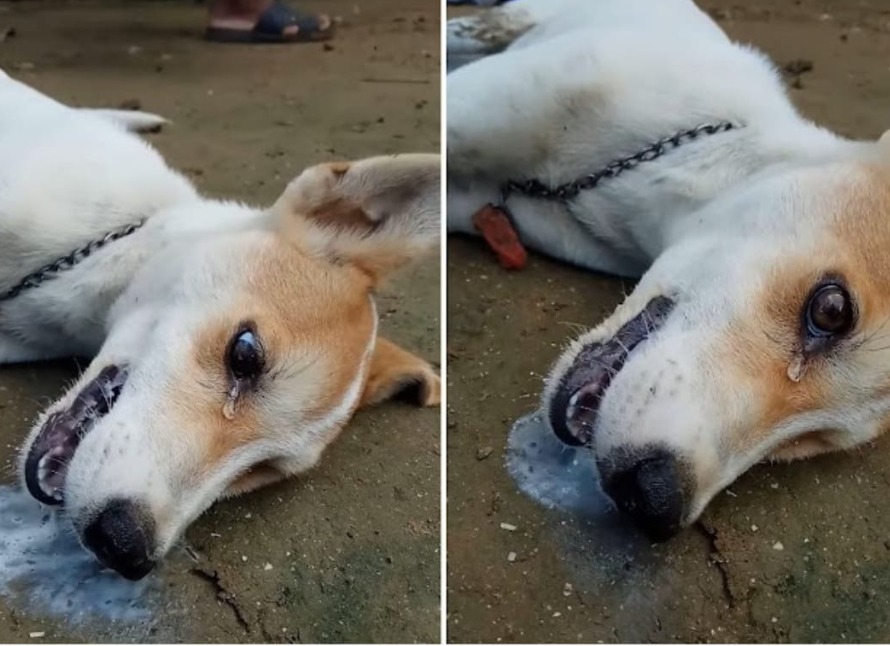
Not quickly, not instantly, not from a blow. They died silently, drop by drop. Someone put a chain on him — short, black, rusty. Someone, perhaps, considered him theirs. And then abandoned him. Or turned the wrong way in anger. Or wanted to punish. Or simply forgot.
He didn’t know what it was called. He didn’t know that pain wasn’t normal. He just lay there, because everything that had seemed like life before — the sound of a bowl, the smell of a bone, a voice calling his name — was gone.
Children were screaming in the neighboring yard. A car was driving by in the distance. Sirens were howling somewhere. But for him, the world had long ago shrunk to a meter-wide circle. That circle didn’t include salvation, kindness, or even pity. Only the sun, the earth, and a metallic taste in his throat.
And then someone finally came up to him.
It was a woman. An ordinary woman. In sandals. With a bag in her hands. She was walking past, like everyone else. But at some point, she froze. She saw. She bent over. She put the bag down. She squatted down. And she simply said:
— My God… you’re still alive…
And then he twitched his ear. Barely. And that was the beginning of a new story.
This woman’s name was Anna. She was forty-three, returning from the market. She bought chicken wings for her son and tomatoes for a salad. She was in a hurry — it was hot, she was thirsty, they were waiting for her at home. But when she saw the dog, her heart felt like it had been pricked with something thin and icy. She came closer and saw: drool was running in a sticky stream, his breathing was ragged, flies were swarming in his ears. He was not dangerous. He was broken.
Anna did not know what to do. A vet? A shelter? Who would take him? But she could not leave. She called a taxi. She convinced the driver that it was not contagious. She wrapped the dog in a blanket from the trunk. He did not resist. Only once — he twitched when her hand touched the chain. She carefully took it off and threw it in the trash can on the corner.
At the vet clinic they said — poisoning. Most likely, household chemicals. Someone put it in. Or he himself found something poisonous while looking for food. The probability of survival is 10 percent.
“You understand,” the doctor said, “this is not a dog, this is a shadow. He may not even survive the night.”
Anna signed the documents. She bought medicine. She spent the night next to him. He did not move. He lay in the corner like a bag of bones. But at some point, he slightly raised his head. He looked. He saw her. And he did not turn away.
So a week passed. Then a second. He began to eat. Then to get up. Then, slowly, with trembling paws, to approach her when she called his name. And he received his name on that very first night — Ray. Because, as Anna said, “in every darkness there must be at least one ray.”
Three months later, he was unrecognizable. He still limped, his fur had not fully recovered. But he was no longer afraid of sounds. He wagged his tail. He went outside. He sat next to her when Anna drank tea on the balcony. He sniffed her son, looking into his eyes. And sometimes — he cried. Real tears. From joy, from recognition, from memory.
Two years have passed since then. Luch lives in the family. He doesn’t trust strangers. He barks if someone knocks on the door. But if you rub him between the ears once — he will press his whole body against you. Because he knows: you can die on a chain, and still wait for your person.
And on Anna’s wall is a photograph. The very one. Where he lies. With a chain. Foaming at the mouth. With pain in his eyes. She doesn’t take it away. Because she remembers: to believe in miracles, you sometimes need to see what it was like “before”.
And if you ask why she did it — she will answer:
— Because otherwise I would not have forgiven myself. And he would not have survived. And now he has a home. And we have a heart that can believe again.
➕
